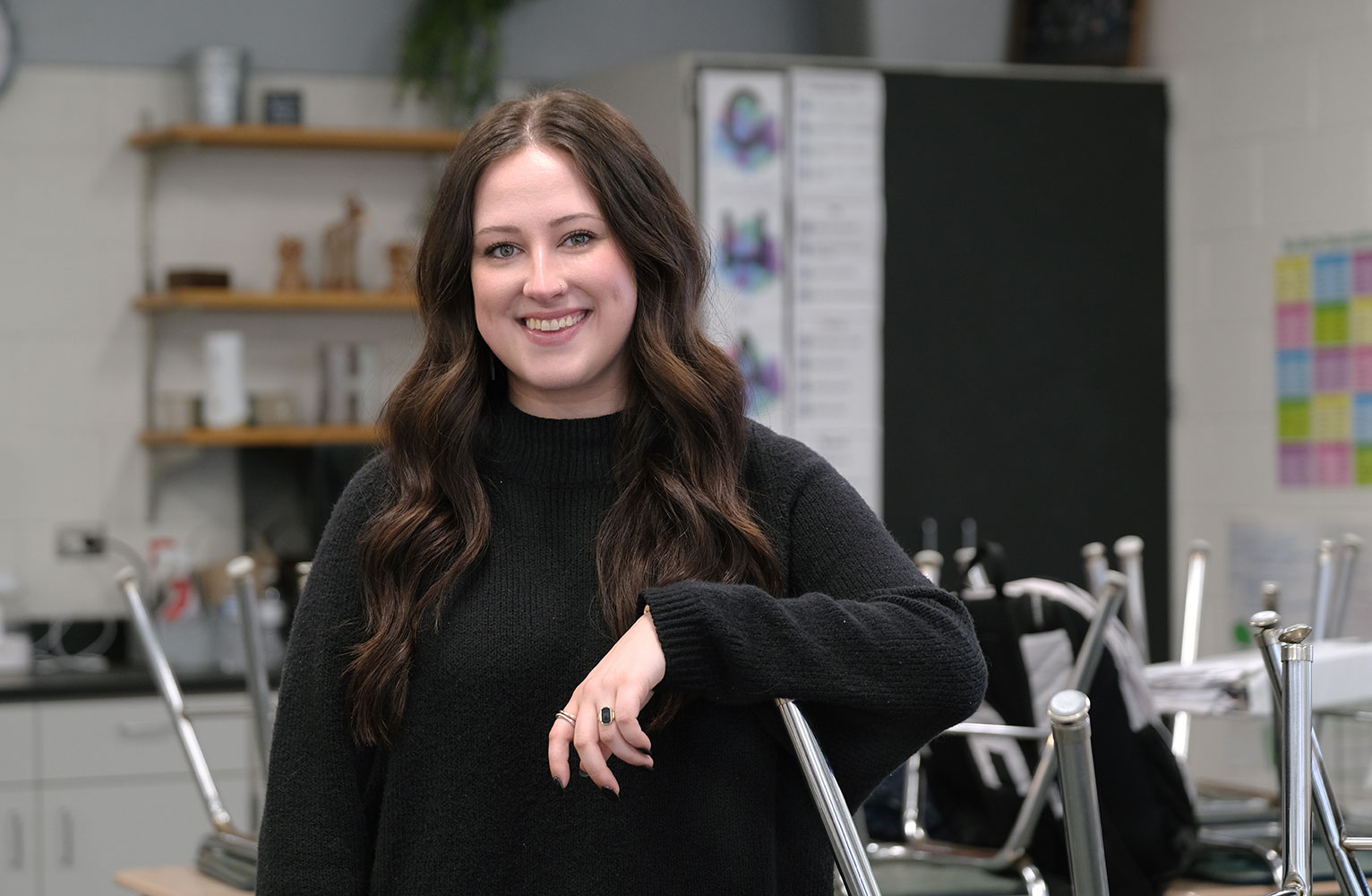
John Powell and Jacquelyn Dowd Hall (Illustration by Nicole Basile)
Although he spent his career as an investment advisor and not an academic, John Powell ’77 enjoyed primary research and conducted it daily. At Integral Capital Partners, the Silicon Valley firm he and his partners founded and ran from 1991 to 2014, Powell loved going out and talking to people trying to do interesting things and deciding whether to invest in them. “I can’t imagine a better job,” he said.
Powell learned about research as a history major at Carolina, and still remembers renowned scholar Joel Williamson teaching about the difference between primary and secondary sources.
Williamson, who died in 2019, told Powell’s class how historians had studied phone records to learn more about the 1906 Atlanta Race Massacre and its aftermath in the minds of everyday Atlantans. Powell found the approach that sought out those directly involved in history to be even more fascinating than reading books, though he enjoyed that too.
“That was when I first understood, profoundly, the difference between secondary research and primary research,” Powell recalled. “I brought that approach to the investment business.” Instead of being content to read research reports on new companies, like many in his profession, Powell preferred to talk to the people starting those companies.
“A lot of people sat and read reports written by other people, and then did a great job of synthesizing them and acting on them,” he said. “But our firm set up in Silicon Valley because we wanted to hear from on-the-ground, primary resources about who was doing what, firsthand. And it was fun.”
The power of hearing people tell their own stories is why Powell chose to honor Jacquelyn Dowd Hall by creating a Wilson Library Research Fellowship in her name.
“On the UNC campus, we have extraordinary resources for primary research by scholars of the American South, and one of the gemstones is the Southern Oral History Program,” Powell said. “Jackie Hall was founding director, and she is responsible for what it has become. And she deserves to be recognized for that.”
Honoring a legend
Hall, now Julia Cherry Spruill Professor Emerita in the department of history, led the Southern Oral History Program (SOHP) from 1973 to 2011. She is one of the founders of the modern field of women’s history. She also helped to spark a thriving scholarship in Southern labor history and to turn the study of the Civil Rights Movement in new directions. She received a National Humanities Medal for her efforts to deepen the nation’s engagement with the humanities by “recording history through the lives of ordinary people, and, in so doing, for making history.”
She is past president of the Organization of American Historians and the Southern Historical Association, founding president of the Labor and Working Class History Association, and an elected member of the American Academy of Arts & Sciences. In 1997, Hall received UNC’s Distinguished Teaching Award for graduate teaching. In 2013, she donated her papers to the Southern Historical Collection.
Hall grew up in Pauls Valley, Oklahoma. After attending college in Tennessee and graduate school in New York, she began working with the Southern Regional Council, an organization that promotes racial justice in the South. While there, she started an oral history project in partnership with civil rights activists from the Institute for Southern Studies, now based in Durham, North Carolina, to document the stories of Southern activists in the 1930s and 1940s.
In 1973, Hall came to Carolina to direct the brand-new SOHP, initially housed in the history department, and brought many of these histories with her. In 1978, the program received a grant from the National Endowment for the Humanities to collect stories about the industrial revolution in the South, which resulted in the book Like a Family: The Making of a Cotton Mill World, the winner of multiple awards. For the University’s 1993 bicentennial, the program added over 300 histories of the college’s population, including students, chancellors and service workers. As support for the SOHP grew, so did its collection; the program now holds more than 7,500 recordings from a diverse range of Southerners.
Today, SOHP has its home at Carolina’s Center for the Study of the American South. Wilson Library is the repository for the SOHP collection and its expanding archive of oral histories. The Library, in collaboration with the SOHP, has created a searchable database that provides information about individual interviews and access to digitized recordings and transcripts.
An investment in young scholars of the American South
Wilson Library Fellowships connect students and scholars with UNC-Chapel Hill’s rich special collections. The fellowships program offers support at varying levels, with opportunities for master’s and doctoral students, as well as faculty and independent scholars.
The Jacquelyn Dowd Hall Fellowship will support graduate students conducting research and teaching about the American South, including but not limited to the creation of papers, articles or works of art. It encourages, but doesn’t require, applications that intend to make use of oral history sources, especially the holdings of the Southern Oral History Program.
Hall said she was incredibly honored by Powell’s gift. “I couldn’t be more thrilled by the prospect of a fellowship that will encourage young scholars of the American South to discover and use the priceless primary sources held by the Library, with an emphasis on the rich and growing collection of oral histories created by the Southern Oral History Program. I have always treasured John Powell’s steadfast support for the study of the South at UNC and am so grateful to be associated with this latest example of his generosity.”
Powell’s creation of the Hall Fellowship has helped the library get closer to meeting a $500,000 challenge grant from the William R. Kenan, Jr. Charitable Trust to endow the fellowship program. Over the years, Powell has honored several scholars of the South with similar gifts, including distinguished professorships named for Williamson, John Shelton Reed and George B. Tindall (1921-2006), and a lectureship named for Genna Rae McNeil.
Powell says the library’s signature collections — the Southern Historical Collection, the Southern Folklife Collection and the North Carolina Collection — along with the Center for the Study of the American South and the Southern Oral History Program, make UNC-Chapel Hill the top place in the world to study the region. “For UNC to have the best repository of primary resources about Southerners and their stories is really cool to me.”
Written by Claire Cusick for University Libraries
Related Stories




